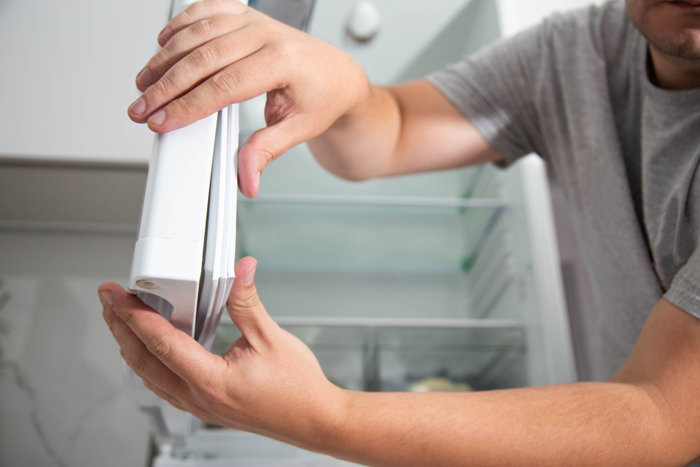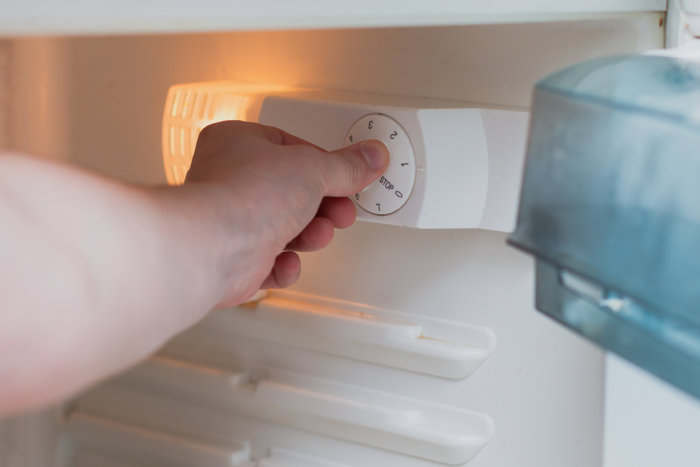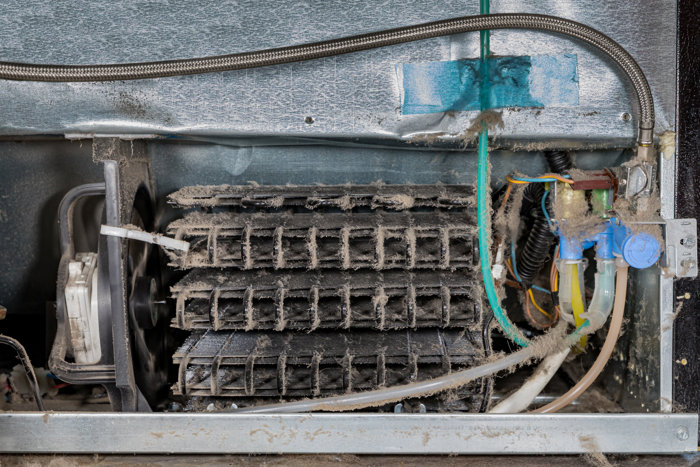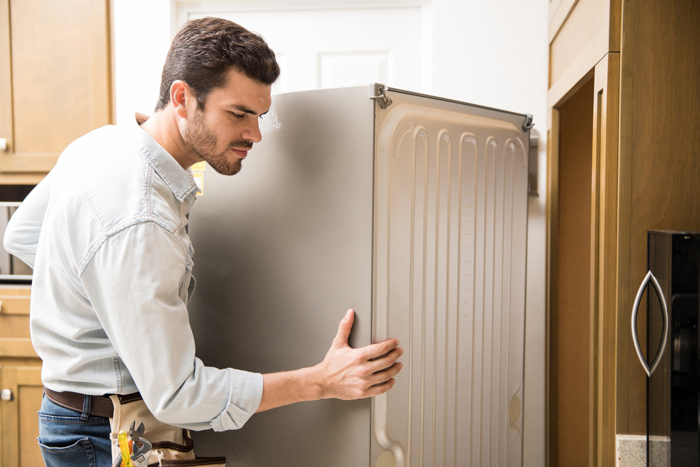Refrigerator Energy-Saving Tips
Learn how to make your fridge and freezer more energy efficient.
Refrigerators Eat Up a Lot of Energy
Refrigerators run all the time, making it one of the biggest drivers of energy usage on your bills. To help lower the cost, you’ll first want to look at the type of refrigerator you have in your home.
- Is it more than 15 years old? Upgrading to a newer, Energy Star-certified refrigerator can reduce energy consumption by as much as 40 percent.
- Where is the freezer located? Refrigerators with top-mounted freezers use 10 to 25 percent less energy than bottom or side-by-side units.

Replace the Fridge?
If you choose to replace your refrigerator, many electric companies offer rebates for recycling old fridges (see recycling programs below). Beyond purchasing a more energy efficient refrigerator, though, there are several more cost-effective ways you can lower your electricity costs.
Refrigerators typically account for 13.7 percent of a home’s energy usage.

Check the rubber seal on your refrigerator door
The seals on your refrigerator door help keep the cold air trapped inside. Over time, they’ll become dirty and old, allowing the cold air to escape. To check the seals on your refrigerator, simply close the door with a dollar bill between the seal and the door. If you feel resistance when your remove the bill, your seal is good. But if it slides out easily, your refrigerator seal might need to be cleaned or replaced.

Adjust the temperature settings
Many people recommend keeping your refrigerator between 32-38 degrees but keeping it that cold can actually freeze some of the food inside. When the temperature in your refrigerator is set too low, it will use more electricity trying to maintain the low temperature. Likewise, setting your freezer temp too low can cause frost to build up, which makes it run less efficiently. Instead, try bumping up the temperature in your fridge to 40 degrees and your freezer to 5 degrees.

Clean the coils under your fridge
The coils under your refrigerator remove warmth from the unit. When the coils get dirty, it won’t lose heat as easily. Be sure to brush and vacuum the coils under your fridge at least twice a year. If you have pets, consider cleaning under your fridge more frequently. Removing dirt and dust will not only make your fridge more energy efficient, but also reduce repair calls and extend the life of your refrigerator.

Move your refrigerator
The location of your fridge can be another factor impacting the amount of energy it uses. For example, if the sun is beating down on it every day, or if it’s near the stove, the heat can cause your refrigerator to work harder than it should. If your kitchen allows for it, try moving your refrigerator away from the stove and any direct sunlight coming into your kitchen.
Additional Resources
Refrigerator Rebate Programs
Find more rebate programs here.


